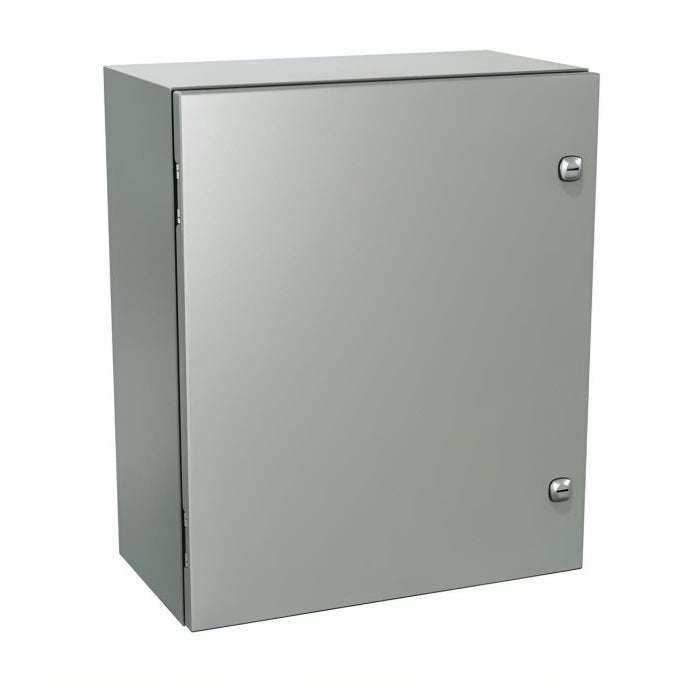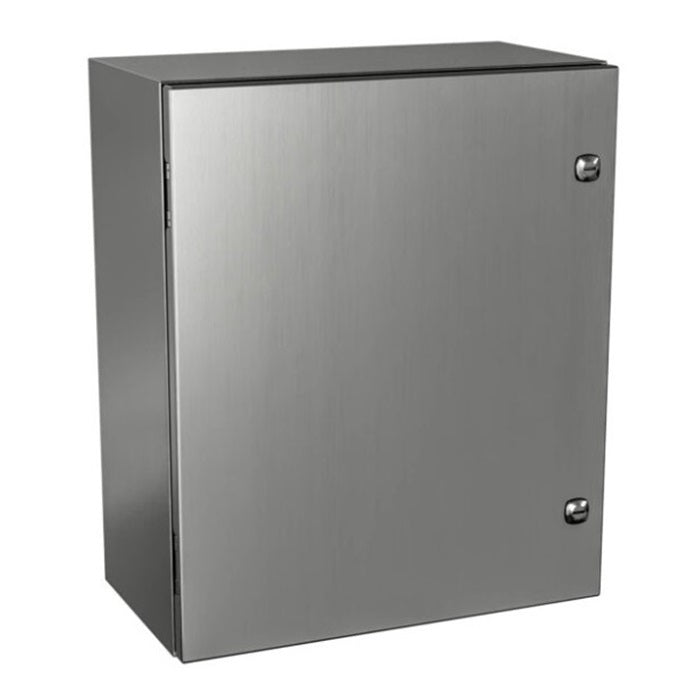Electrical Enclosures
Electrical enclosures are vital components in various industries, designed to protect electrical equipment from environmental hazards, unauthorized access, and mechanical damage. These enclosures ensure the safety and reliability of electrical systems, making them indispensable in both industrial and commercial applications.
Benefits of Electrical Enclosures
1. Protection from Environmental Hazards: Electrical enclosures shield sensitive equipment from dust, moisture, and corrosive substances, ensuring long-term reliability.
2. Safety and Security: These enclosures prevent unauthorized access and protect personnel from electrical hazards, enhancing workplace safety.
3. Durability: Made from robust materials like stainless steel, aluminum, and polycarbonate, electrical enclosures are built to withstand harsh conditions..
4. Versatility: Available in various sizes and configurations, they can be customized to meet specific application requirements.
Applications of Electrical Enclosures
• Industrial Automation: Used to house control panels, PLCs, and other automation equipment, ensuring smooth and safe operation.
• Telecommunications: Protects sensitive communication equipment from environmental and mechanical damage.
• Energy Sector: Essential for safeguarding electrical components in power generation and distribution systems.
• Commercial Buildings: Used in HVAC systems, lighting controls, and other building management systems.
Types of Electrical Enclosures
• Wall-Mounted Enclosures: Ideal for small to medium-sized applications, providing easy access and installation.
• Floor-Mounted Enclosures: Suitable for larger equipment and systems, offering robust protection and stability.
• Junction Boxes: Used to protect electrical connections and wiring, ensuring safety and reliability.
• Weatherproof Enclosures: Designed to withstand outdoor conditions, providing protection against rain, dust, and extreme temperatures.
Manufacturing Standards
Electrical enclosures are manufactured according to various standards to ensure quality and performance:
• NEMA: Standards set by the National Electrical Manufacturers Association for enclosure types and protection levels.
• IP Ratings: International Protection ratings that classify the degree of protection against dust and water ingress.
Conclusion
Electrical enclosures are crucial for protecting and ensuring the reliability of electrical systems across various industries. Whether in industrial automation, telecommunications, or commercial buildings, these enclosures provide durable and versatile solutions that meet the demands of different applications.


